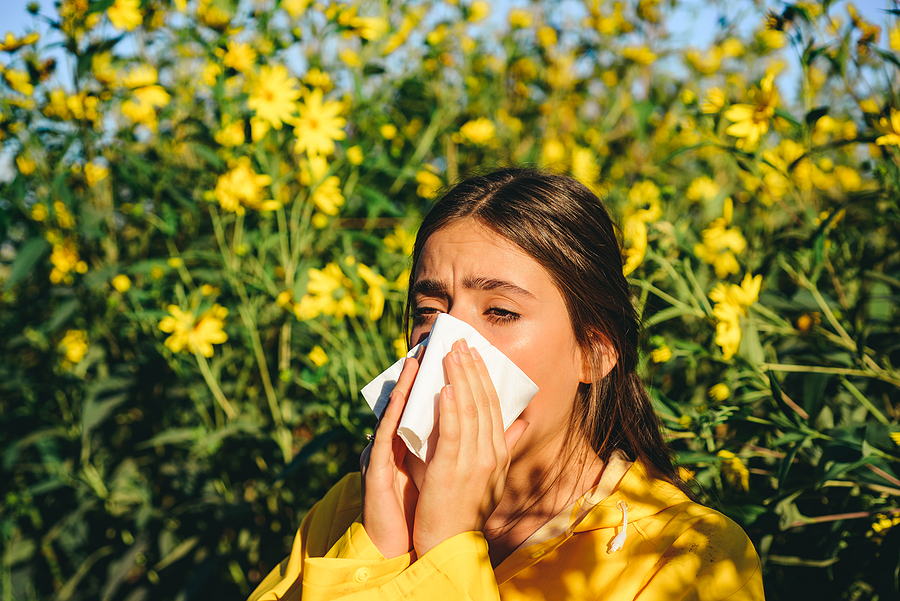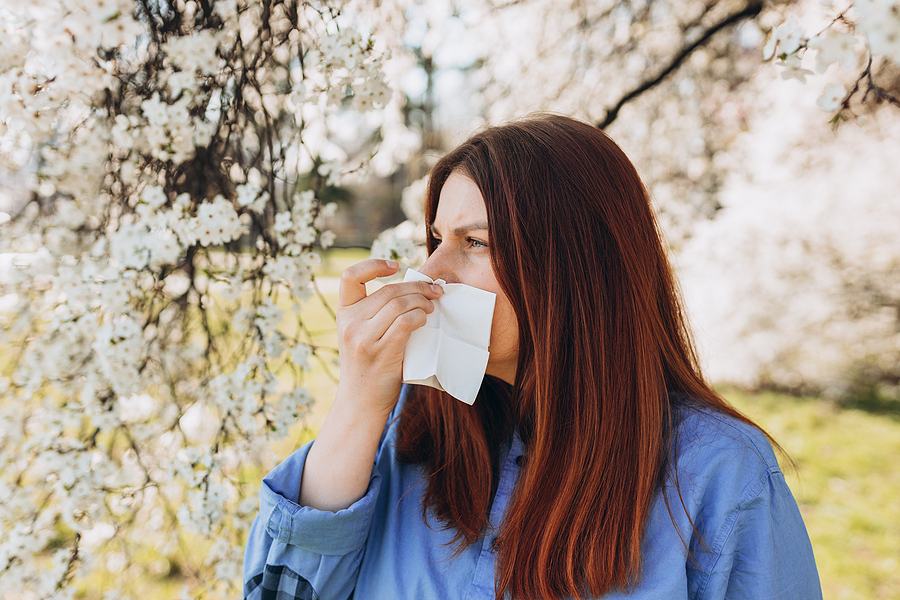Ask The Allergist
Our "Ask The Allergist" section features articles that are reviewed by an allergy doctor, offering you the opportunity to learn about allergies and asthma.
Whether you're seeking guidance from an allergist in Richmond, VA, curious about allergy testing procedures, or looking to understand the latest in allergy care, our blog page will help you learn more about current issues and answer common questions.
Pet Allergies and How to Treat Pet Dander
- Details
 Pets bring joy, companionship, and comfort to millions of households. About 6 out of 10 U.S. households have a pet, including many families where someone is allergic to animals. While living with pets and allergies can be challenging, it’s not impossible. Learning how allergens affect the body and taking steps to minimize exposure can help pet owners manage symptoms while enjoying life with their pet companions.
Pets bring joy, companionship, and comfort to millions of households. About 6 out of 10 U.S. households have a pet, including many families where someone is allergic to animals. While living with pets and allergies can be challenging, it’s not impossible. Learning how allergens affect the body and taking steps to minimize exposure can help pet owners manage symptoms while enjoying life with their pet companions.
Can Allergies Cause a Sore Throat?
- Details
 Many people are surprised to learn that allergies, not just colds or infections, can cause a sore throat. This discomfort is commonly linked to environmental allergens such as pollen, dust, pet dander, and mold. If you’re dealing with throat irritation and suspect allergies may be the cause, you should know how allergies trigger these symptoms and what you can do to find relief.
Many people are surprised to learn that allergies, not just colds or infections, can cause a sore throat. This discomfort is commonly linked to environmental allergens such as pollen, dust, pet dander, and mold. If you’re dealing with throat irritation and suspect allergies may be the cause, you should know how allergies trigger these symptoms and what you can do to find relief.
How Winter Weather Affects Your Asthma
- Details
 If you have asthma, you’re likely familiar with how cold weather can affect your symptoms. Winter conditions, such as cold temperatures, dry air, and spending more time indoors where air quality may be compromised, present extra challenges for asthma sufferers. One of the best ways to prevent and manage asthma flare-ups is to understand how cold weather affects asthma and learn effective tips for controlling symptoms during the colder months.
If you have asthma, you’re likely familiar with how cold weather can affect your symptoms. Winter conditions, such as cold temperatures, dry air, and spending more time indoors where air quality may be compromised, present extra challenges for asthma sufferers. One of the best ways to prevent and manage asthma flare-ups is to understand how cold weather affects asthma and learn effective tips for controlling symptoms during the colder months.
Allergy-Safe Tips for Trick-or-Treating
- Details
 Halloween is a fun time for children and families, but it can also be a challenging experience for those with allergies. Many traditional Halloween treats contain common allergens such as nuts, dairy, or gluten, which can make trick-or-treating a risky activity for people with food allergies. However, with careful planning and awareness, Halloween can still be a safe and enjoyable experience for everyone.
Halloween is a fun time for children and families, but it can also be a challenging experience for those with allergies. Many traditional Halloween treats contain common allergens such as nuts, dairy, or gluten, which can make trick-or-treating a risky activity for people with food allergies. However, with careful planning and awareness, Halloween can still be a safe and enjoyable experience for everyone.
How to Read & Understand Food Labels
- Details

Managing life with a food allergy can make grocery shopping daunting. Ingredients are always changing so it means reading food labels every time you are in the store. Whether you are shopping for yourself or a loved one with food allergies, knowing how to read ingredient lists and understand allergen warnings is crucial. Making a habit of reading labels whenever you buy prepackaged food is important to avoid potential reactions.
5 Myths About Allergies and Asthma
- Details
 Allergies and asthma are common conditions that affect millions of people worldwide. Despite their prevalence, misconceptions about these conditions are frequently spread. Understanding the truth about allergies and asthma is important for proper management and care. By dispelling common myths, individuals can better navigate their health journeys and seek appropriate treatments.
Allergies and asthma are common conditions that affect millions of people worldwide. Despite their prevalence, misconceptions about these conditions are frequently spread. Understanding the truth about allergies and asthma is important for proper management and care. By dispelling common myths, individuals can better navigate their health journeys and seek appropriate treatments.
In this blog, we’ll debunk five common myths about allergies and asthma. But first, let’s understand what these conditions are.
Traveling with Asthma and Allergies
- Details

Traveling can be an exciting adventure, but for those with asthma and allergies, it can also be a source of stress and concern. Whether planning a vacation or a business trip, managing your asthma and allergies effectively is crucial to ensure a safe and enjoyable journey.
We’ve compiled a checklist of essential tips to help you be prepared to travel safely and avoid any asthma or allergy-related emergencies while away from home.
How to Prepare for an Allergy Doctor Visit
- Details

Visiting an allergist is necessary to manage your allergies effectively, but you may wonder if there is anything you should do to prepare ahead of time. Whether you're seeing a Richmond Allergist or any other specialist, the goal is to identify what triggers your allergic reactions and find a treatment plan that works for you.
Preparing for this visit is important, as it helps maximize the outcome of your consultation and testing. Here’s how you can prepare for your appointment with an allergist.
When Should You Consult with an Allergist?
- Details

Allergies and asthma are prevalent conditions affecting millions of Americans each year. In Richmond, VA, as in many parts of the country, these conditions can significantly impact individuals' daily lives, making it crucial to understand when to seek the expertise of an allergist.
Why is Richmond, VA so Bad for Allergies?
- Details

If you are one of the 100 million people in the United States who suffer from allergies, you are probably familiar with symptoms that vary depending on the time of year. It’s no surprise that where you live plays a role in the severity of symptoms, and Richmond, VA is known for being a hotspot for allergy sufferers as many seek relief from an allergy doctor.
How to Minimize Seasonal Allergies This Spring for Relief
- Details

As the warm weather approaches and the first buds of spring appear, so does the season of sneezes and sniffles for many. At our allergist's office, we witness firsthand the impact of seasonal allergies on our patients' lives.










